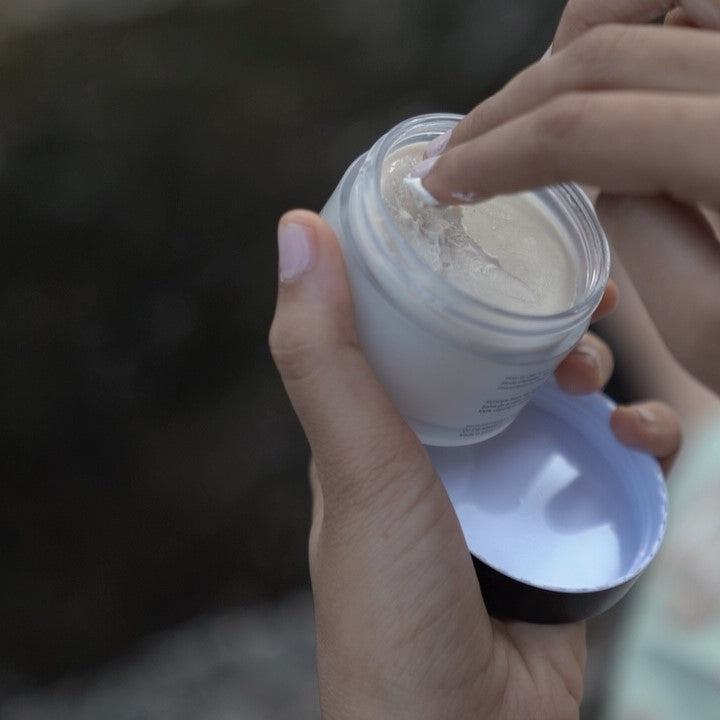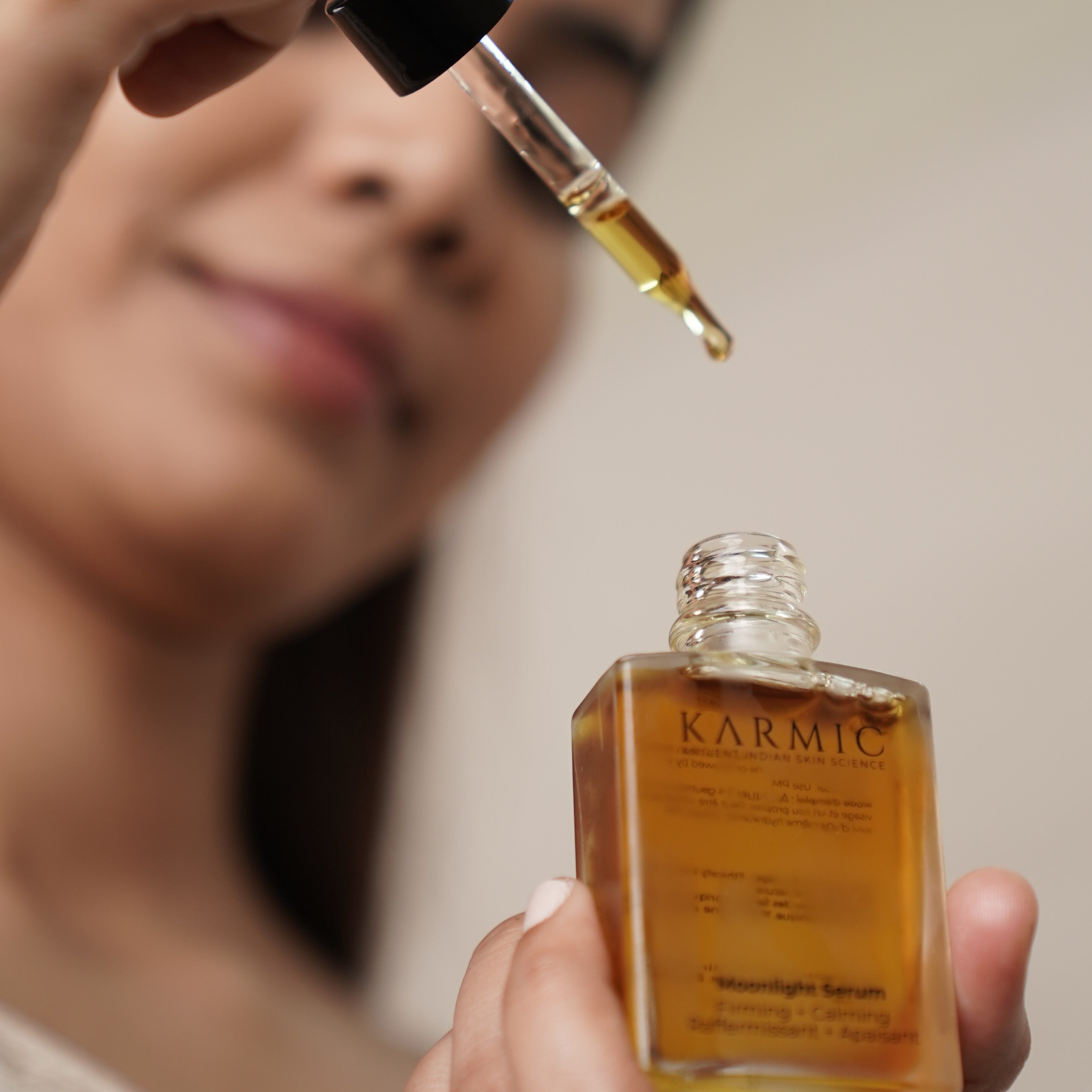1. Pigmentation:
What is Pigmentation?
Pigmentation involves changes in skin colour, primarily due to melanin overproduction. It manifests in various forms, significantly affecting one's appearance and requiring targeted skincare strategies.
Types of Pigmentation:
Types of pigmentation include melasma, often hormonal; sunspots and freckles from sun exposure, age spots, vitiligo (skin losing pigment and becoming lighter or white) and post-inflammatory hyperpigmentation, which follows skin injury.
Causes of Pigmentation:
Pigmentation can be caused by sun exposure, genetic factors, hormonal changes and skin injuries. When the skin is damaged by injury or acne, more melanin is produced for protection. This, in turn, causes dark spots - hyperpigmentation. Ageing is also a cause - as the skin's repair and regeneration decline, they potentially cause melanin build-up resulting in age-related dark spots.
Understanding these causes is crucial for prevention like Face Serum and targeted treatments, helping maintain an even skin tone and overall skin health.
2. Blemishes:
What are Blemishes?
Blemishes are imperfections on the skin such as spots, marks, discolourations or flaws. Fortunately, they are usually benign. They often result from clogged pores or hormonal fluctuations and can vary in severity, impacting both skin health and confidence.
Common Types:
Common types of blemishes include acne, which manifests as pimples and blackheads, whiteheads and cysts. Other blemishes can be due to ingrown hairs, scars and eczema. Papules (small red bumps) appear when dead skin cells, bacteria or excess oil push deep into the skin and cause inflammation.
Identifying these helps tailor appropriate skincare treatments.
Why do Blemishes Occur?
Blemishes occur due to factors like hormonal imbalances, excessive oil production and clogged pores. Environmental irritants and stress also contribute, highlighting the need for a tailored skincare routine to prevent and treat these skin issues effectively.
3. Comparing Pigmentation with Blemishes:
Pigmentation primarily affects skin colour through uneven melanin distribution, whereas blemishes are raised or flat disruptions caused by clogged pores or inflammation.
Appearance and Location:
Pigmentation typically presents as darkened patches or spots across various body areas, particularly where sun exposure is common. In contrast, blemishes like acne often appear on the face, neck and back, where oil glands are more active.
Longevity and Treatment:
Pigmentation tends to be persistent and may require long-term management strategies such as topical creams or laser treatments. Blemishes, while occasionally chronic, often respond to lifestyle changes and targeted topical treatments, resolving more quickly than pigmented lesions.
4. Treatment Options:
Over-the-counter solutions:
There are over-the-counter solutions for pigmentation and blemishes. Look for natural ingredients which are gentler on the skin, like squalene and avocado oil, which help remove blemishes and pigmentation. Regular use as directed can effectively reduce symptoms and improve skin appearance.
Professional Treatment:
Professional treatments for skin issues include chemical peels, microdermabrasion and laser therapy, tailored to either reduce pigmentation or clear blemishes. Consulting with a dermatologist can help determine the most effective method for your specific skin condition.
Treatments vary, according to the causes. If pigmentations or blemishes appear due to allergies, disease medication, diabetes or damage from chemical products and artificial fragrances, these issues should be addressed.
Preventive Measures to Protect Your Skin:
Daily Skincare Routine:
Implementing a daily skincare routine is vital for preventing pigmentation and blemishes. This should include:
- Cleansing, toning, moisturising and exfoliating.
- Applying sunscreen (SPF 30 or above) to protect against UV damage - a must.
- Wearing a hat, sunglasses and protective clothing
- Using products suited to your skin type to maintain its health and appearance.
Lifestyle Adjustments:
- To prevent skin issues, consider lifestyle adjustments such as:
- A balanced diet rich in antioxidants.
- Sufficient water intake.
- Stress management techniques.
- Good amount of sleep and exercise. Avoid smoking and limit alcohol consumption.
- These will significantly benefit skin health and appearance.
Conclusion:
In summary, understanding the nuances between pigmentation and blemishes is key to adopting the right skin care approach. Whether it's choosing over-the-counter products or seeking professional advice, effective solutions are at your fingertips. Companies like Karmic Skin offer various solutions for acne scars and to help you navigate these options. Embrace these insights and take proactive steps towards healthier skin, ensuring you can confidently manage and improve your skin conditions with the right care and knowledge.




